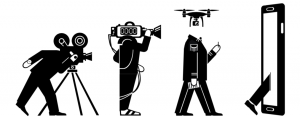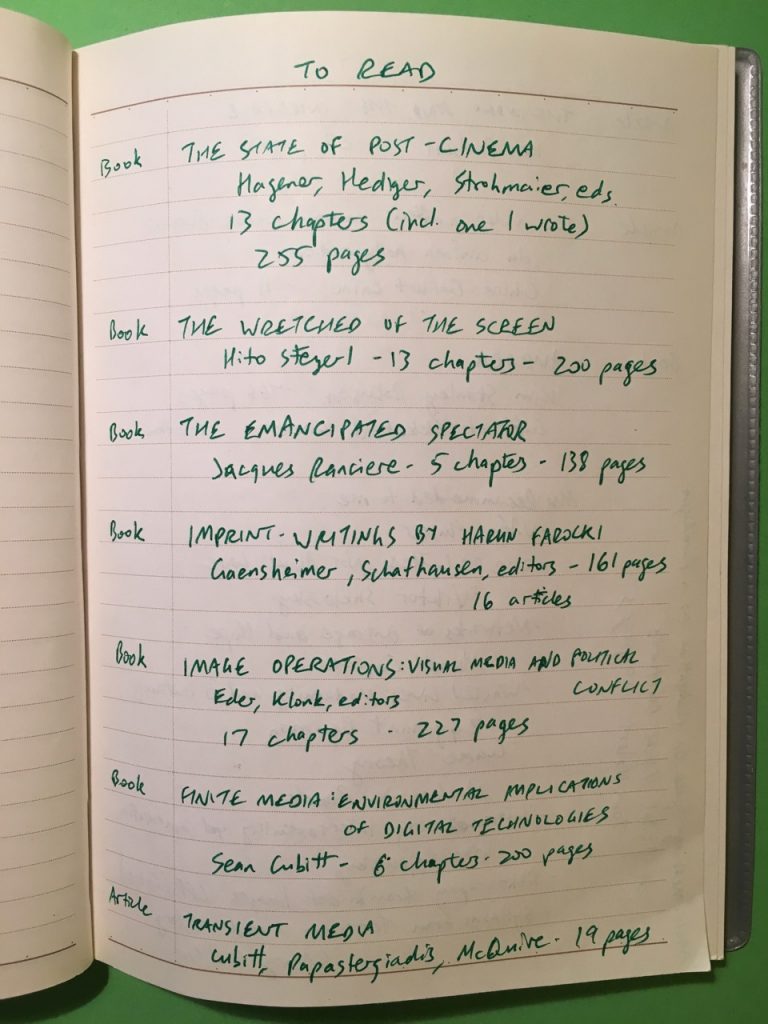Film critic Andreas Busche recently asked me if I had ever met Harun Farocki. I met him exactly once, almost exactly five years ago, during the 2012 Berlinale. It was at the premiere party for the film Barbara directed by German director and Farocki collaborator Christian Petzold. It was a festive but distracting environment full of people, so I don’t remember much from the exchange. (I had a more significant conversation with his partner Antje Ehmann, who said some nice things about “The Spielberg Face,” which I had just recently published.) But yes, I can say that I met Harun Farocki, though it happened haphazardly and despite a more deliberate (albeit equally awkward) initial attempt to do so… Continue reading “Meeting Harun”
Month: February 2017
Under Planning
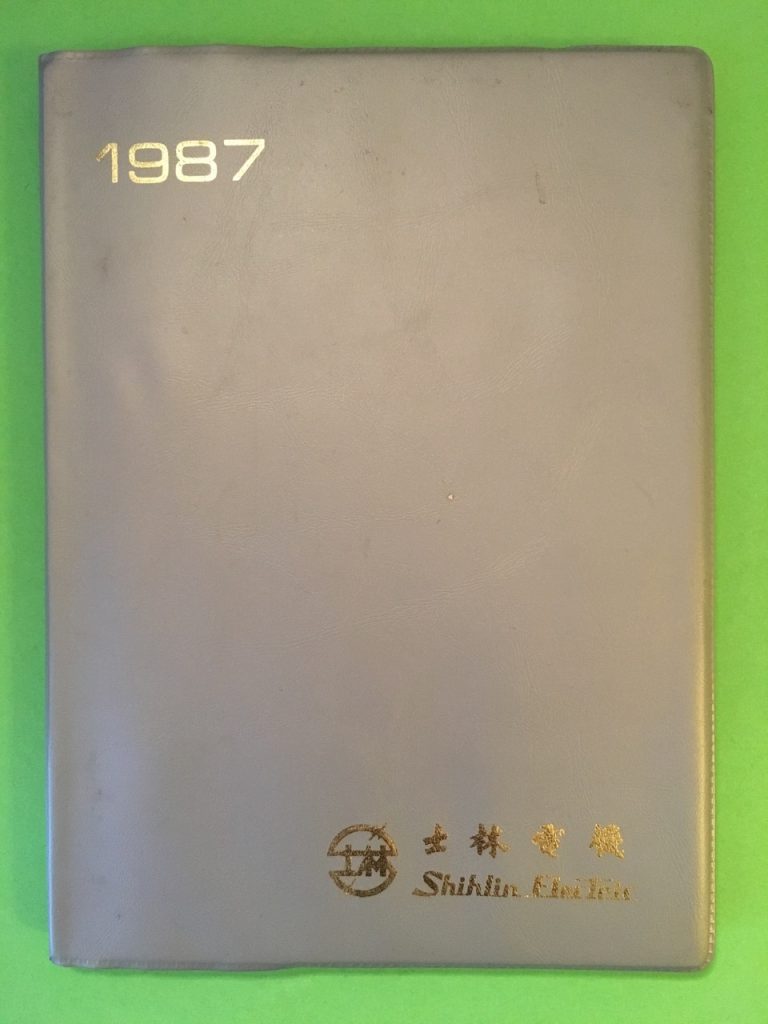
This is a planner/notebook that one of my mother’s relatives gave me 30 years ago, when my mother took me to see them in Taiwan. For whatever reason, I haven’t used it until 30 years later. It feels right to be using it as a notebook for my residency, connecting my family past in Taiwan to my present in Germany.
The notebook mostly has typical note-taking pages like those featured here. But at the front there are a few pages that introduce the factory where my relative (grandfather? one of my uncles?) worked.
Video Essays from 2007 – Getting Started
One of the aims of the Harun Farocki Institut is to support archival activities, chiefly concerning Farocki’s personal and professional archival materials, but also to the critical study of moving images at large. In this spirit, I’ve spent some of my time in my residency undergoing a personal archival project, uploading and cataloging all of the 300+ video essays I’ve produced over the last ten years to my Vimeo account and linked to my personal website. So far I’m a third of the way through this project.
As I go through this cataloging process, I think about how to make these videos most useful and accessible to anyone who happens to encounter them. I’ve tagged each video with keywords corresponding to the historical period of their subject (i.e. 1920s for a late silent era film), as well as genre, geographical or national origin, or filmmaking topic (e.g. acting and performance; cinematography). Part of this is to diagnose what my own prevailing topical interests have been over the last ten years: how many video essays have I made about editing as opposed to narrative structure, cinematography or acting? Continue reading “Video Essays from 2007 – Getting Started”
Alain Bergala
Considered one of the seminal French texts on film and education, The Cinema Hypothesis: Teaching Cinema in the Classroom and Beyond by Alain Bergala is newly available in an English translation, published by SYNEMA Society for Film and Media, Austrian Film Museum. Here’s a Google translation of the book description:
“The former chief editor of the “Cahiers du cinéma” deals with the potentials, possibilities and problems of film in the school context without sacrificing his own deep passion for the cinema and his lifelong preoccupation with it.”
In addition to the translation of the original book, this publication includes an interview with Bergala conducted by Alejandro Bachmann of the Austrian Film Museum. In the course of the conversation Bergala comments on the current mode of videographic film studies (video essays) and divides them into two groups:
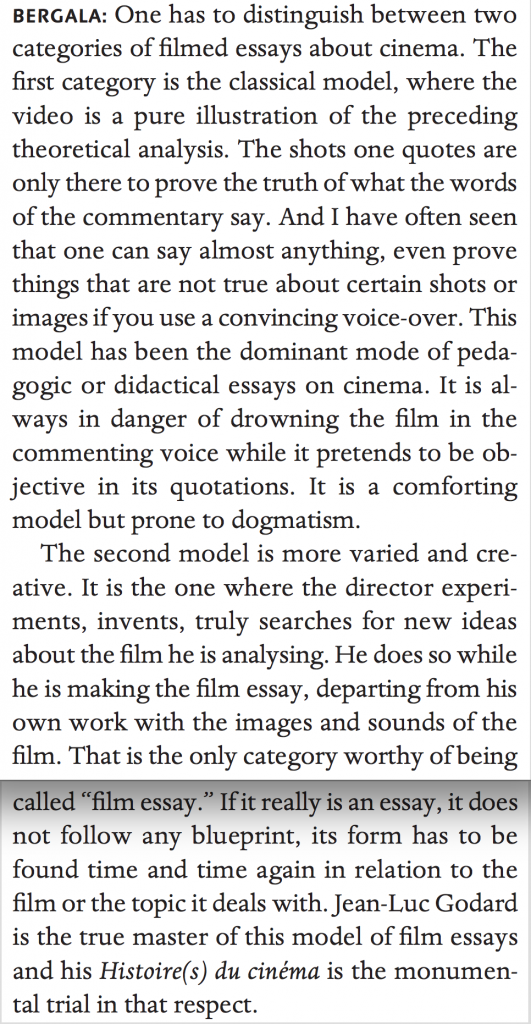
Further along in the book description, more words that resonate with me:
Rotterdam, Part 3. Not Another Camelot.
This year the Rotterdam International Film Festival invited me to make a video essay to introduce their screenings of the film Jackie, directed by Pablo Larrain and starring Natalie Portman as First Lady Jacqueline Kennedy. I made this video essay “Not Another Camelot,” to trace the recent history of US First Ladies, and tries to answer the question “How did we get from Jackie Kennedy to Melania Trump?
The video got a really positive response at the film festival so I decided to publish it online.
Reading, Forwards and Backwards
I’ve accumulated enough books, articles and recommended readings in the past month that I am listing them here.
Rotterdam, Part 2. Six quotes from Thomas Elsaesser’s talk.
There’s much to process from Thomas Elsaesser’s hour long talk on “The Cinema of Abjection” at the 2017 IFFR – much of which will be expanded upon in his forthcoming book on the topic. I wrote ten pages of notes, and reviewing them takes my thoughts in several directions, such as:
- The central question that frames Elsaesser’s argument, about how the notion of the abject might possibly revitalize art cinema and film festival culture (I’m a bit skeptical of this claim but it would take a lot of space to properly unpack this);
- What exactly defines “abjection” in cinema (at one point a film as mainstream as Inception was labeled abject); one audience member posited “alterity” as a term Elsaesser might actually be meaning when he uses “abjection”, especially since he seems to use it more in social and political terms than psychological;
- How the abject might find a place in video essays (since most video essays are expressions of love of cinema, with a tendency towards normalizing and domesticating our understanding of cinema through explaining and expressions of affection – how might the video essay instead be expressions of abject inarticulateness and incomprehension, to the point of dread?).
- That abjection ultimately doesn’t reside in the film, but in the viewer’s regard of the film. Elsaesser provides a long list of films that he considers “abject” but my response is “to whom?” Afterwards I told him about my experience as a teacher in China in 1997 showing rural college students Star Wars for the first time, and they were baffled and distressed by its depiction of a world that was completely alien to them. From this example I am convinced that the abject doesn’t reside necessarily in a work, but in the space between a work and its viewer.
These issues are remarkably relevant to my current project, though to discuss it here may be to divulge too much. Instead I’ll offer six quotes from Elsasser’s sixty minute presentation that I found particularly striking and, when strung together, give a loose impression of the arc to his argument (though the actual presentation is much more in depth, to be sure):
Continue reading “Rotterdam, Part 2. Six quotes from Thomas Elsaesser’s talk.”
Rotterdam, Part 1. What I Saw.
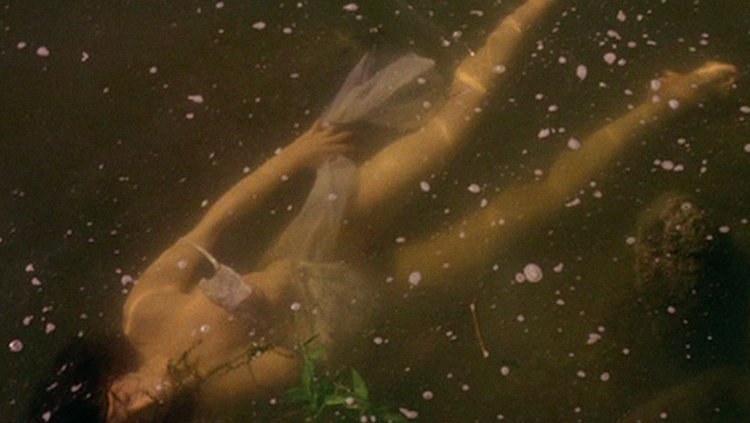
I spent the last seven days at the International Film Festival Rotterdam. I’m writing this from a Vapiano next to the hotel where I stayed. Coincidentally I spotted Mark Cousins in this same Vapiano (it’s kind of reassuring to know that even Mark Cousins goes to Vapiano) sitting with a glass of wine looking like he was enjoying the time old art of people-watching, shortly before he was about to literally take an axe to his own creation following its penultimate screening. Here’s the script for his performance:
I could have said hi to Mark at Vapiano, but I had already had a very enjoyable encounter with him the previous evening, and frankly I’m exhausted from my stay here, so I’m hiding in a remote corner of the restaurant with my ratatouille penne and my laptop. In the past week at the festival I watched 14 features and 28 short and mid-length films. I’m not sure how to feel about this activity, because all this time spent watching films is time I could have spent working on my own projects. So it begs the question of why, given my own free choice, I spent so much time watching films.
A public conversation on my current project, February 6 at FU Berlin
Here’s the poster for a talk that Chloé Galibert-Laîné and I will give regarding our current project, as part of the ongoing series “In Process-In Progress: Conversations About the Present and Future of the Moving Image.”
Monday, 6 February 2017 at 7:30 PM
Auditorium of the Seminar for Film Studies, FU Berlin (Grunewaldstraße 35, 12165 Berlin-Steglitz).
Free admission
Event description follows below the image.
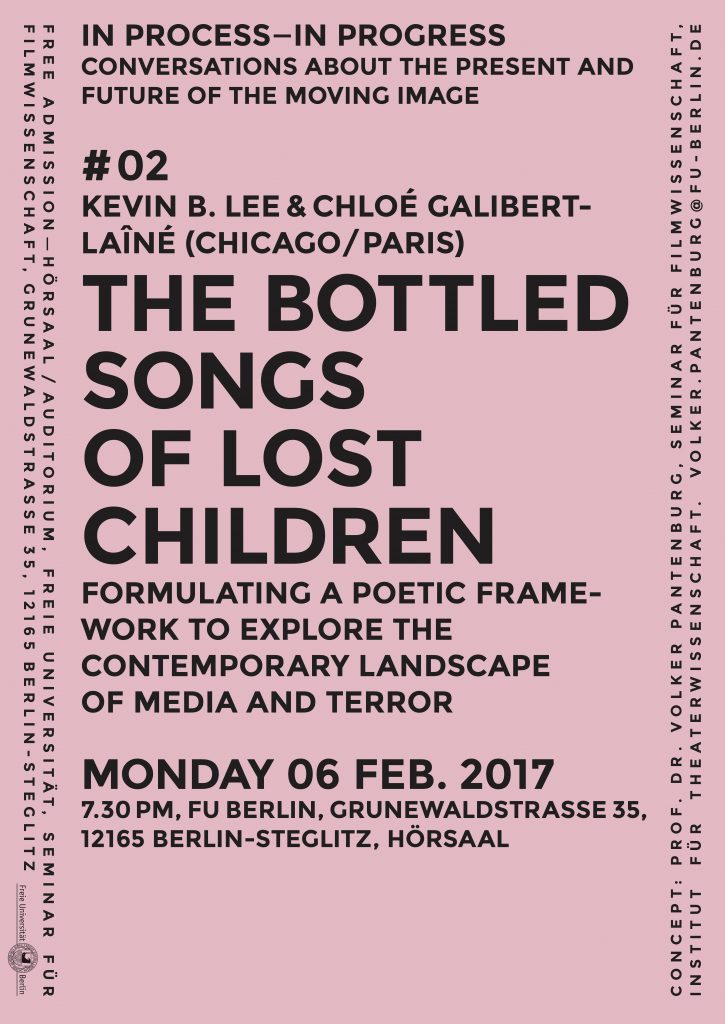
Continue reading “A public conversation on my current project, February 6 at FU Berlin”
